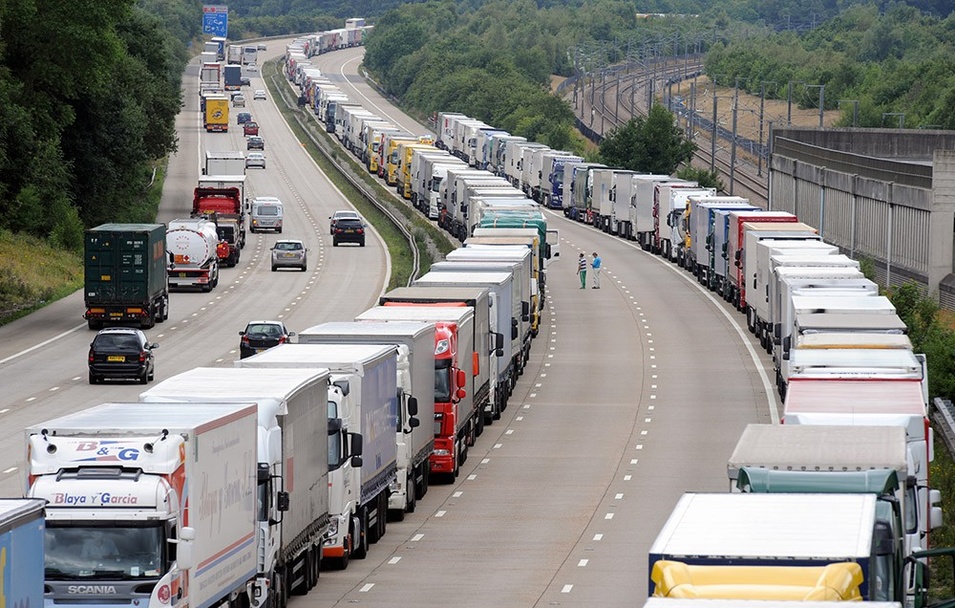
3 September 2018
One of the most characteristic features of the CEE is the fragmentation of the region by quite rigid interstate borders. Political conflicts and contradictions only intensify the ”encapsulation” of the CEE countries leading to a decrease in cross-border cooperation activity.
This creates significant problems and leads to the loss of considerable part of revenue that each country might get in case of productive cooperation of all actors of the region.
First of all, the transit potential of the CEE is devaluing. This region is located at the crossroads of transit routes, that connect the West, the East and the South which gives it possibility to become one of the largest trade hubs in the world. Unfortunately, the geographical advantage of the region is devalued by the existence of a high amount of customs borders, that are also characterized by an extremely low throughput capacity.
Second of all, transnational corporations are actively being formed within the CEE. Their production chains are located on the territories of the countries of the region. Optimization of business processes in frames of similar TNCs requires minimization of the influence of factor of border existence on the movement of goods and services, that form a single production chain.
Third of all, slow economic cooperation within the eastern members of the EU and their CEE neighbors not being part of the Union leads to the fact, that border regions remain critically under-invested. The development of border infrastructure is at the very low level and since long ago meets the requirements of time. All these leads to corruption, smuggling, illegal migration and many other unwanted phenomena.
How can the current situation be changed? In the situation when it's impossible to find a common language on political questions, it is worth concentrating on local economic projects, that will be beneficial/profitable for all the participants even if there are temporary political contradictions. Such common interest for all the state of the CEE is the trade volume increase together with the realization of transit potential of the region. In this direction exists a wide list of practical tasks that need to be solved in the nearest future:
1. Increasing the throughput capacity of the borders and decreasing time and quantity of the cargoes check/control. This problem is one of the most negative factors that retard turnover growth between the EU and its` eastern partners. It is especially acute for road transport that has to spend significant time and money to cross the border. In this context, the priority measures should be the increase of number of border crossing points, the reduction of bureaucratic pressure on the forwarders, simplification and speeding up of customs procedures, creation and development of an automated cargo handling system.
2. Infrastructure development of highways passing through the CEE. The key role in the development of transport cooperation is playing the development of highways. The most important projects are the construction and operation of roads that connect eastern CEE countries with partners in the West, at first with the ones they are cooperating with in the frames of the free trade zone.
Eastern neighbors of the EU, in their turn, should make significant efforts to improve their own transport infrastructure, especially Ukraine. Improvement of road surfaces will increase the popularity of the routes connecting Ukraine with her Western neighbors and the revive the transport communication between them.
It is also necessary to consolidate the efforts in order to develop the seventh international transpor corridor that runs along the Danube. It will not also allow the revive the regional trade, but will also bring additional revenues from the operation of the channel Danube – Black Sea.
3. The development of railway connection between the neighboring regions. Nowadays the potential of railway transport in the CEE is partially devalued by the technical obstacles, primarily by a different width of the railway tracks. This problem can be solved in two ways – by commissioning carriages that can adapt to both standards of tracks or the development of a European standard in the neighboring countries. Such projects often appear in Ukraine.
One the most realistic projects is the continuation of the narrow track from Ukraine-Poland border to Lviv. In frames of “Eurotrack” project Ukraine plans to build a narrow-track railway of the European standard - 1435mm in width and 75km in length. The project is very promising and in case of its successful implementation, it will be feasible to analyze the possibility of its` further development.
4. The development of logistics hubs in the border region. It will allow to increase the added value of the transported cargoes by providing logistics services and cargo handling services. One of the perspective projects in frames of this direction is the creation of international transport-logistics centers at the borders of the EU and its` Eastern partners. The construction of logistics centers of such scale will not only strengthen the transit role of the countries of the region, but will also allow to form powerful transport clusters contributing to the increase of investment attractiveness, employment and strengthening of a financial basis of border regions activity.
In frames of each of the mentioned directions, the CEE countries should develop a list of specific joint programmes. Their implementation will not only contribute to the enhancement of cross-border trade, but will also allow to improve the security of the borders, encourage additional investment, in particular, to the border regions, but most importantly, will accelerate the economic integration of the CEE.
Modernization of the Public Finance System Based on New Public Management: Advantages and Risks
About VAT and its alternatives: which sales tax is optimal for the economy?
Why Ukraine should Develop Industrial Parks
EU Announces Sweeping New Rules That Could Force Breakups and Hefty Fines for Big Tech
The EU will Remain Closed for the Ukrainians in the First Half of 2021, but There are Exceptions
The Eurozone Demonstrates High Resilience to Crises. There is Hope for a Rapid Economic Recovery